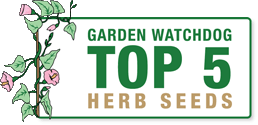Shipping/FAQs
Jump to:
Seeds
Bareroot/Dormant Plants
Explanation of Codes
Our Definition of an Herb
The Cultivation of Herbs
About Mail Order Plants
Our Seeds
Quantities
Starting your Seeds
Organic vs Not
Shipping
Shipping Charges
Seeds:
Not all our varieties are available as seed, but many are. Standard retail packets are $3.50 each. Retail packets contain varying numbers of seeds, depending on the variety. Most packets contain far more than the average home gardener needs; Basil packets will contain 150 - 300 seeds, Lobelia packets(tiny seeds!) may contain a thousand. We do offer many varieties in bulk increments from 1/8 oz to 1 ounce, and note the number of seeds per ounce where known. For quantities larger than one ounce, please call us for pricing.
Bareroot/Dormant Plants:
We are offering some of our native plants in a dormant/bareroot state with significant price reductions. If a variety is available in bareroot form, you will find there are quantity discounts. The more you buy, the better the chance of re-establishing populations of these natives in areas they may have been extirpated from in the last couple of centuries. We hope to add to the number of varieties we can offer this way in the future by networking with people involved in plant rescue (from development) operations. Dormant/bareroot plants are much easier to ship and the risk of damage is much lower. We ship them this way from February through May and then again from September through November.
Explanation of Codes:
Longevity:
- A – Annual. Normally lives for one season, sets seed and dies.
- B – Biennial. Life span of 2 years. Flowers develop the second and final season of growth.
- HP – Hardy perennial. Winter hardy (we are located between zones 5 & 6), lives for many years.
- TP – Tender perennial. Naturally a perennial, but will not withstand freezing temperatures.
Light Conditions:
- FS – The plant prefers full direct sun (minimum of 4 or 5 hours a day).
- PS – The plant prefers partial shade for most of the day.
- Sh – The plant prefers full shade, like that of a mature forest canopy.
Uses:
- A – Aromatic, the plant is suitable for use in sachets and potpourri.
- B – Attracts butterflies.
- C – Culinary, the plant is used in the preparation and flavoring of foods, or as a tea.
- D – Dye, used in the formulation of fabric dyes.
- E – Everlasting, good for wreaths and dried arrangements.
- H – A good honey plant, attractive to bees.
- L – Has traditional ceremonial uses.
- M – Medicinal, the plant is believed or known to have medicinally useful constituents.
- N – Native to the Eastern U.S.
- O – Ornamental, the plant is particularly decorative.
- R – Repellent to insects or other pests.
Our Definition of an Herb:
Herbs are plants that have been known, cultivated, or collected for thousands of years because of their aromatic, culinary, medicinal, and other properties. Webster’s definition of an herb is “Any seed plant whose stem withers away to the ground after each season’s growth, as distinguished from a tree or a shrub…” That matches our definition of some herbs, but there are also many trees, shrubs, and vines which we, and others, commonly consider herbs. We offer plants that have been used somewhere, at some time, by somebody, for some particular reason. Our name, Companion Plants, comes from the fact that these plants have been our useful “companions” for as long as there have been humans on this planet. We note in our catalogue how plants have traditionally been used; however, we make no claim as to the benefit or safety of such use. Please consult with a knowledgeable medicinal practitioner for serious conditions. We are not qualified to give medical advice.
The Cultivation of Herbs:
Most herbs are tough plants that can do well in almost any soil when given the right amount of light and moisture. Most will thrive on the addition of organic materials, and most can benefit from a mulch of straw, leaves, or hay. Most MUST have good drainage; exceptions to this rule are noted in the text. This cannot be over-emphasized. Organic materials and gravel or sand are useful for correcting drainage problems, as is the construction of raised beds. Experiment, observe, try again. Don’t be intimidated or discouraged by failures. Herbs are generally easy to grow, and can be immensely rewarding. We are pleased to be able to offer such a wide selection of useful plants to the home gardener, and will attempt to offer all the advice we can to ensure your success with these “companion plants”.
About Mail Order Plants:
When your plants arrive, unpack them at once and water any which are dry. Place them in bright indirect light for a day or two so that they can recover from shipping. They will then be ready to step up into larger containers, or be planted out in the garden. We ship starter plants, not meant to remain in the small pots they come in. We strive to ship healthy plants with well-developed root systems just itching to get more foot room. Most of our plants are shipped in 2 ½ inch square by 3 ½ inch deep pots to encourage root growth and hold shipping costs down. Please notify us immediately of any damage incurred in shipping. Broken leaves and bent stems, while unsightly, generally are not cause for alarm. Remember, the plant has just been packed in a box, thrown on a truck, and driven across the country. A healthy happy plant will speedily recover from minor bumps and bruises. We guarantee our plants safe arrival.
Our Seeds:
Most of the seed we sell is harvested from our own plants or gathered from wild plants. Some we buy from other seed companies to supplement what we have grown. We cannot vouch for them being organic, but we guarantee all seed we sell to be true to name and viable. Please notify us immediately of any problems for replacement or refund.
Quantities:
Herb seeds, because most of them are so small, are easily washed away and lost if sown directly in the ground. To compensate for this, most of our seed packets contain quantities far in excess of what the average gardener will need. Most packets contain 100-200 seeds. Tiny seeded Chamomile may contain 1000 or more, giant seeded Castor Beans contain 15-20. Our standard packets are filled by measure, not weight.
Starting your Seeds:
Generally speaking you’ll get the most consistent results if you sow your seeds in containers. Small seed can be sown on the surface of moist soil or potting media and then pressed gently (not buried) into the soil. Mist or spray. Keep the seeds moist until they germinate, which will take from 1-4 weeks depending on the variety. Larger seeds should be buried to a depth no greater than twice their own diameter. Covering your containers with clear plastic (poke some holes for ventilation) until germination will cut down on the risk of drying out the seed, one of the main causes of non-germination. Many varieties can be directly sown outside with good results. Experiment! General cultural information is sent with each seed order.
Organic vs Not:
Our seed beds were certified organic in 1993-1995, but we opted to forego certification since 1996 due to the expense and paperwork. We haven’t changed any of our agricultural practices in our seed production fields, but wanted more flexibility in dealing with pests in our greenhouses. We use the most user-friendly pesticides we can since many of our plants will wind up on someone’s table. The main pesticides we use in the greenhouses are Insecticidal Soap, Rotenone, and Pyrethrum. The latter two are plant extracts with a very short life once applied and exposed to sunlight, and very low toxicity to mammals. We sometimes use them in forms that are not certifiable (in a petroleum based carrier, or in a synthetic form) for the convenience of application. Our seeds are untreated after harvest, and are grown with practices that would be certifiable if we chose to go that route
Shipping:
We ship orders by UPS and the US Post Office, depending on our assessment of the best way to get your orders to you in good shape. If you have a preference, please let us know. UPS can’t deliver to a P.O. Box, so please include a physical address. If we’re out of a particular item, please indicate if you would like substitutions, a credit voucher, or a refund. We will use our own discretion if this isn’t marked. All refunds under $5 will receive a credit voucher only. We cannot split-ship (ship at different times, or to different addresses) orders under $75 (exclusive of S&H charges) unless you are willing to add another minimum shipping charge. We generally do not back-order on larger orders, we will ship what is ready at your requested shipping date, and ship the remainder later. We return your original order form with your final shipment, so please keep a copy of your order to check what we ship you. We ship orders as quickly as possible, but occasionally there will be delays for propagation of out-of-stock varieties.
Please provide us with your preferred shipping date, if you have one. This will help ensure that your plants arrive when you expect them. Also, let us know if you will be out of town and cannot accept delivery of your plants. We ship year-round unless weather conditions prohibit it. Generally we (and you) can expect delays in shipping July and August, as well as from November through March. We ship plants only on Mondays, Tuesdays and occasionally Wednesdays to avoid having them sit in a warehouse over the weekend. Seed orders are shipped within a day or two of receiving them.
Sometimes a delay between receipt of your order and the shipment of it means that we are waiting for your plants to be in the best shipping condition. We strive to ship you high quality plants. Please let us know immediately of problems or plants received in poor condition. If the carrier is at fault, they require immediate notification, which we will handle. If the problem is our fault, we would appreciate knowing so we can take prompt corrective action. We guarantee your satisfaction.
No minimum order!
Sorry, we do not ship live plants outside the U.S.
Shipping Charges:
Seeds
To U.S. addresses:
- 1-5 packets - $4.00
- 6 - 20 packets - $4.50
- 21 and up - $5.50
Mexico or Canada: $14 (US funds) per order
Other nations: Please inquire before ordering. The Covid-19 pandemic has brought a multitude of changes as far as exporting seeds go. Many countries have put restrictions on accepting mail from the outside, and many now require Phytosanitary Certificates on seed orders which adds $50.00 to your order.
Potted Plants
East of the Mississppi (except FL + ME) Priority Mail - $12.00 + .50 per plant
West of the Mississippi, FL, LA, ME, MN - Priority Mail - $14.00 + .50 per plant
Alaska & Hawaii - $18.00 + $1.00 per plant
Overnite, 2nd day air, UPS or FedEx - inquire.
Dormant/Bareroot Plants
East of the Mississippi: add 10% to the price of the bareroot total
West of the Mississippi: add 15% to the price of the bareroot total
Purchase Orders: We accept P.Os from governmental agencies, universities, botanic gardens, etc. Please include the purchase order number, clear billing instructions and billing addresses.

